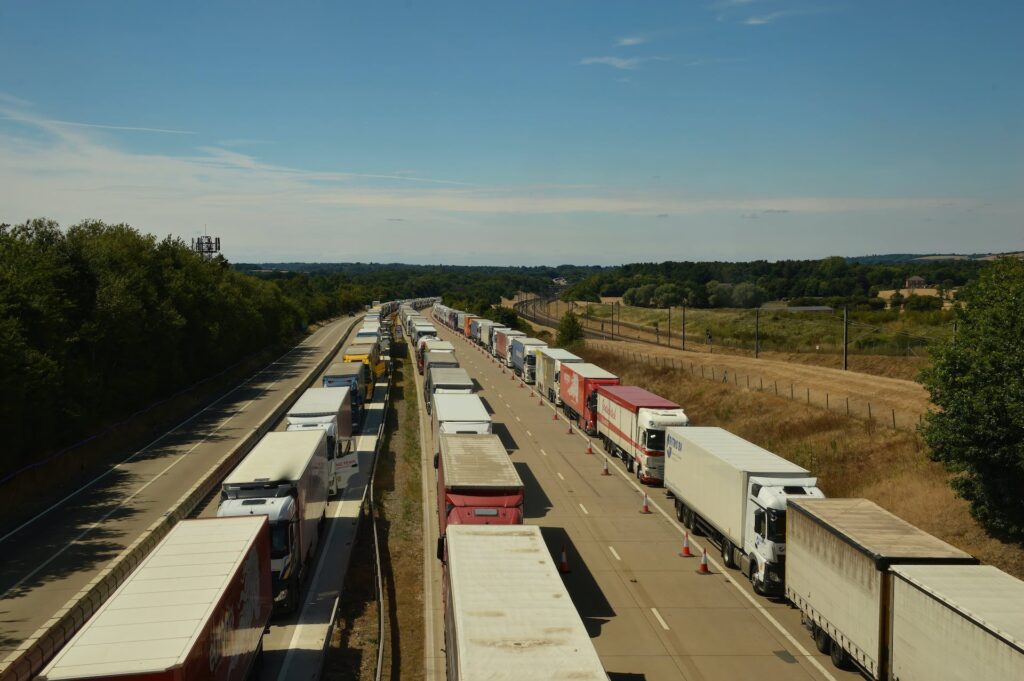Pros And Cons Of Road Freight Management In Logistics
Discover the advantages and drawbacks of road freight management in logistics. Flexibility versus environmental impact.
Road freight transportation is the lifeblood of logistics with trucks delivering goods across cities, countries and continents. Managing road distribution comes with major benefits but also some inherent challenges. This examination of road freight’s pros and cons provides perspective on maximising advantages while navigating downsides.

Benefits of Road Freight
Several inherent strengths explain road transport’s leading position, including:
Flexibility and Accessibility
Unlike rail or air options, road vehicles can reach virtually any destination or stop point to load/unload cargo. Trucks access locales lacking rail spurs or airports, directly serving a wider range of suppliers, distribution centres and customer sites. This flexibility suits the rise of omni-channel retail with e-commerce shipments to myriad locations. It also facilitates emerging quick commerce models with same-day delivery.
Better responsiveness and scalability facilitate customisation like dynamic routing to prioritise urgent orders or exploit backhaul opportunities. This nimbleness creates efficiency advantages relative to restrictive rail schedules. It also keeps costs more aligned to fluctuating transport demand.
Infrastructure Abundance
The sheer abundance of road infrastructure—from motorways to rural access roads—enables road haulage’s expansive reach. The UK Government projects spending over £27 billion on roads over the next five years, further enhancing access. The ongoing expansion of distribution warehouses and centres into exurban locations also leans on the ubiquity of trucking infrastructure.
Competitive Marketplace
Thriving competition amongst hauliers drives continued innovation to capture market share. Low barriers to entry also promote small operator dynamism unlike concentrated rail and air freight sectors. Shippers benefit via competitive pricing, specialisation niches and service differentiation. Mass road freight marketplaces foster comparison shopping while still enabling tailored contracts.
Improved Sustainability
Sustainability should not be overlooked amidst road freight’s advantages. Yes, trucks still predominantly run on diesel and emit particulate pollution. However, the rapid adoption of lower-emission fuels and electric trucks is revolutionising sustainability. Government incentives spur quicker replacement of ageing fleets with modern, cleaner trucks. Many major logistics firms have already announced commitments to fully electrify fleets over the next decades. This transition will dramatically shrink road freight’s carbon footprint.
Drawbacks of Road Haulage Dependence
Despite the modal advantages above that ensure trucks will remain logistics workhorses for the foreseeable future, overdependence on road freight causes numerous economic and societal drawbacks, including:
Infrastructure Strain
Sheer volume of truck traffic taxes road infrastructure not originally designed for current usage levels or vehicle weights. Maintenance lags on both the strategic road network of motorways and key local roads straining under distribution centre volumes. While rail also requires significant capital investment, the wear and tear of roads remains disproportionately high from trucks.
Driver Shortages
The trucking sector faces worsening driver shortage pressures, particularly for long-haul routes and refrigerated transports. An ageing workforce, challenging lifestyle and stagnant wage growth deter interest despite government apprenticeship schemes. Safety groups warn shortages risk overworked drivers jeopardising public safety without systemic improvements in hiring and retention initiatives industry-wide.
Community Impacts
While the rise of exurban logistics clusters enables efficiencies of scale, some rural communities bear a disproportionate burden from conveniences benefiting consumers and businesses far removed. Noise, congestion, safety risks and pollution prompt fierce local resistance. Yet economically, companies gravitate toward these logistics clusters giving road access and cheaper land unaffordable in urban areas. Balancing these competing interests grows more urgent amidst rapid industry expansion pressures.
Public Cost Externalisation
On a related note regarding infrastructure impacts, public costs of road maintenance represent expenses externalised by logistics companies, essentially subsidised off government balance sheets. Yet damage accrues disproportionately from heavy lorries that do the most damage whilst paying less than commensurate road user fees. Updated taxation that charges by distance, vehicle weight and emission factors could create fairer, polluter-pays structures.
Total Cost Under-accounting
Finally, while logistics firms and customers often assess road freight purely on proximate costs like fuel, labour, trucks, maintenance and cargo claims, societal impacts outlined above reflect additional real costs not captured in market pricing nor corporate accounts. Environmental damage, infrastructure impacts, accidents, congestion delays and health consequences from emissions all accumulate enormous public costs. Better internalising these expenses could drive better pricing signals and decision-making aligned with social welfare rather than skewed purely toward corporate profits or customer discounts.
Conclusion on Road Freight Management
In closing, road freight management will remain integral for logistics operations thanks to inherent flexibility, accessibility and scalability advantages that alternative transport modes struggle to match. Additionally, ongoing fleet improvements are starting to decarbonise road haulage while still leveraging the sector’s strengths.
However, excessive reliance on trucking creates strains from infrastructure wear to driver shortages and community impacts. A balanced policy and commercial response should aim to improve road freight’s total cost efficiency via appropriate taxation, address driver conditions and support intermodal alternatives. This combined public-private focus holds the promise of harnessing the logistical might of road haulage whilst minimising attendant public drawbacks over the long run.
Contact Us
We are here when you need us. Get in contact to see what we can do for you
Contact Us